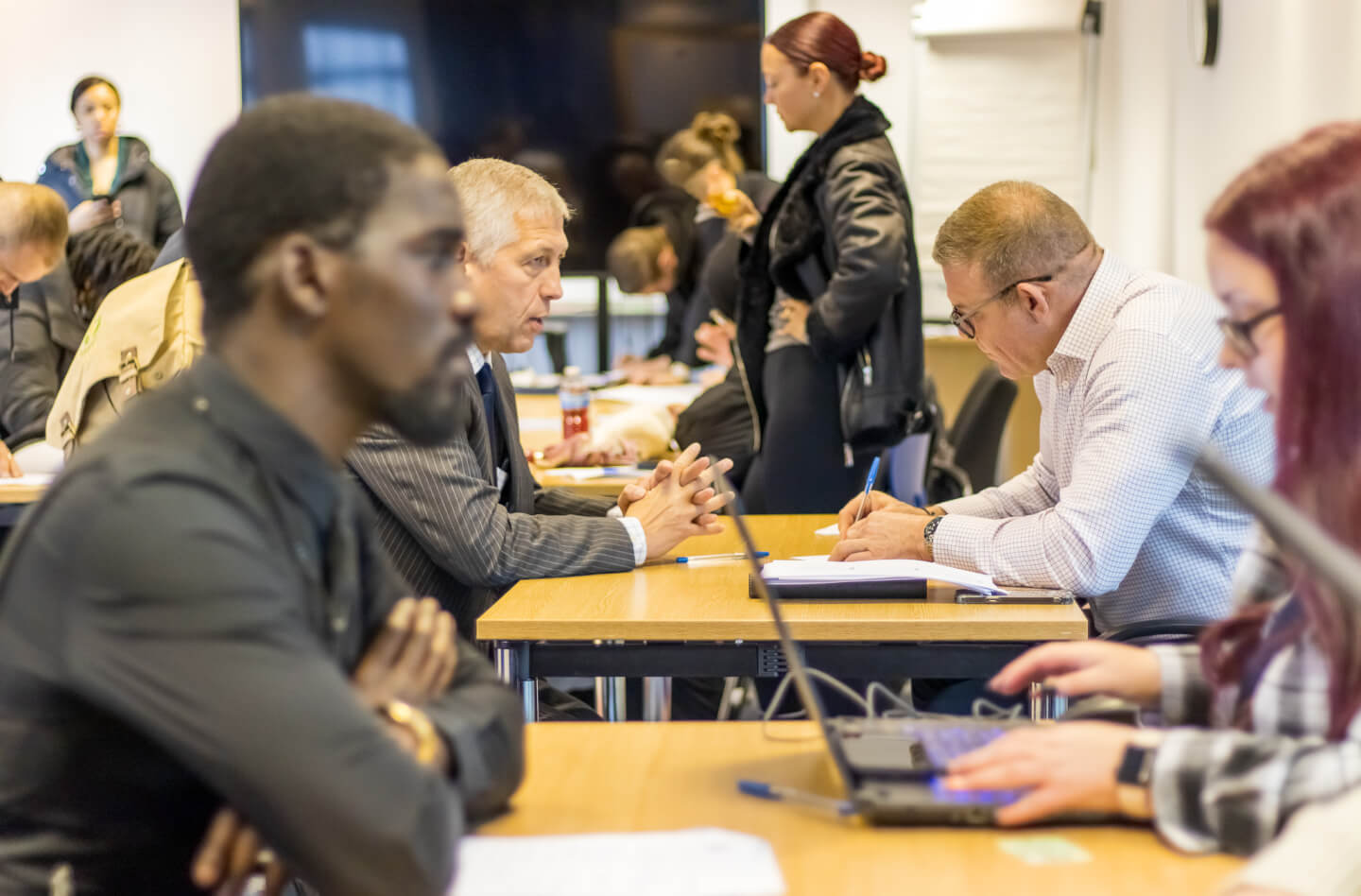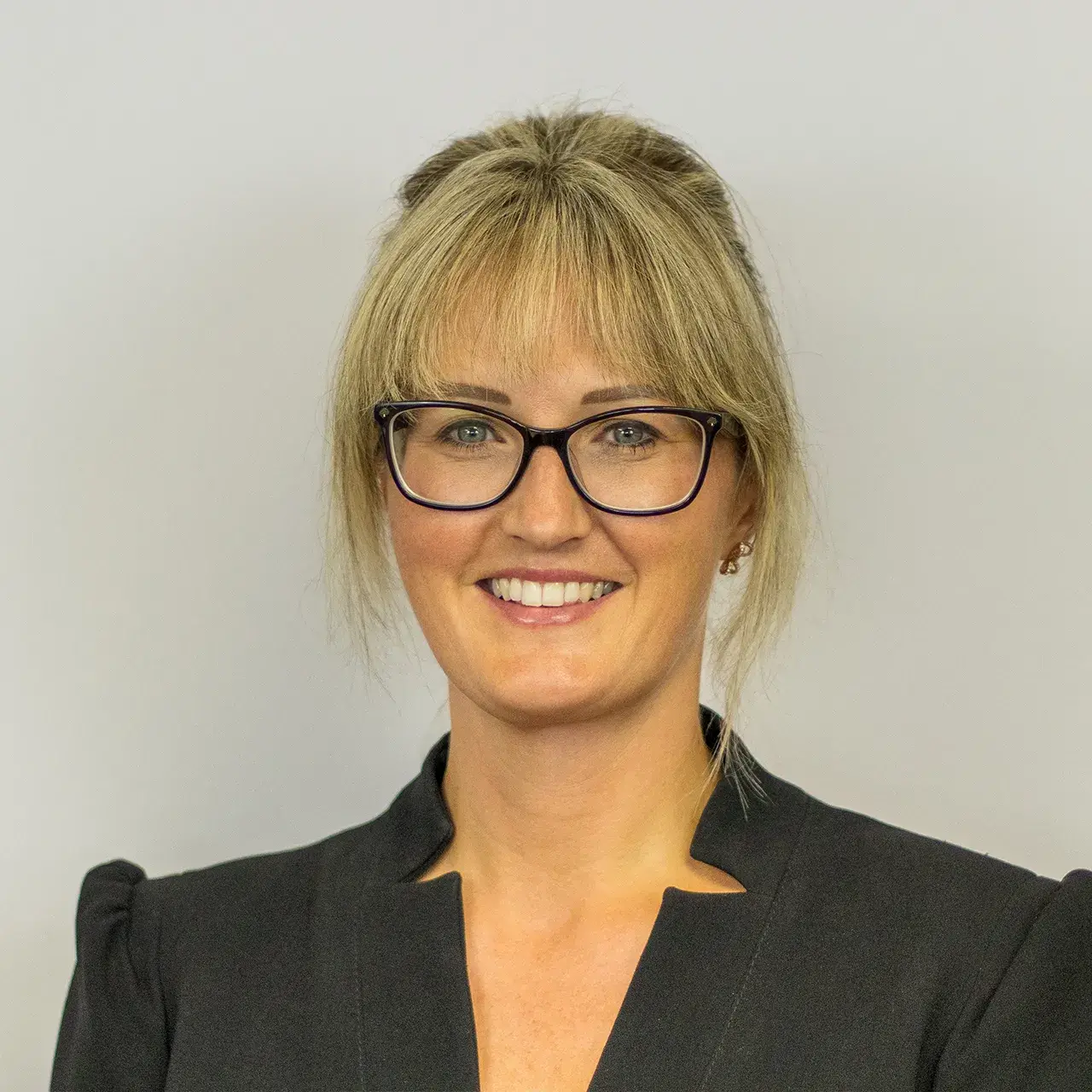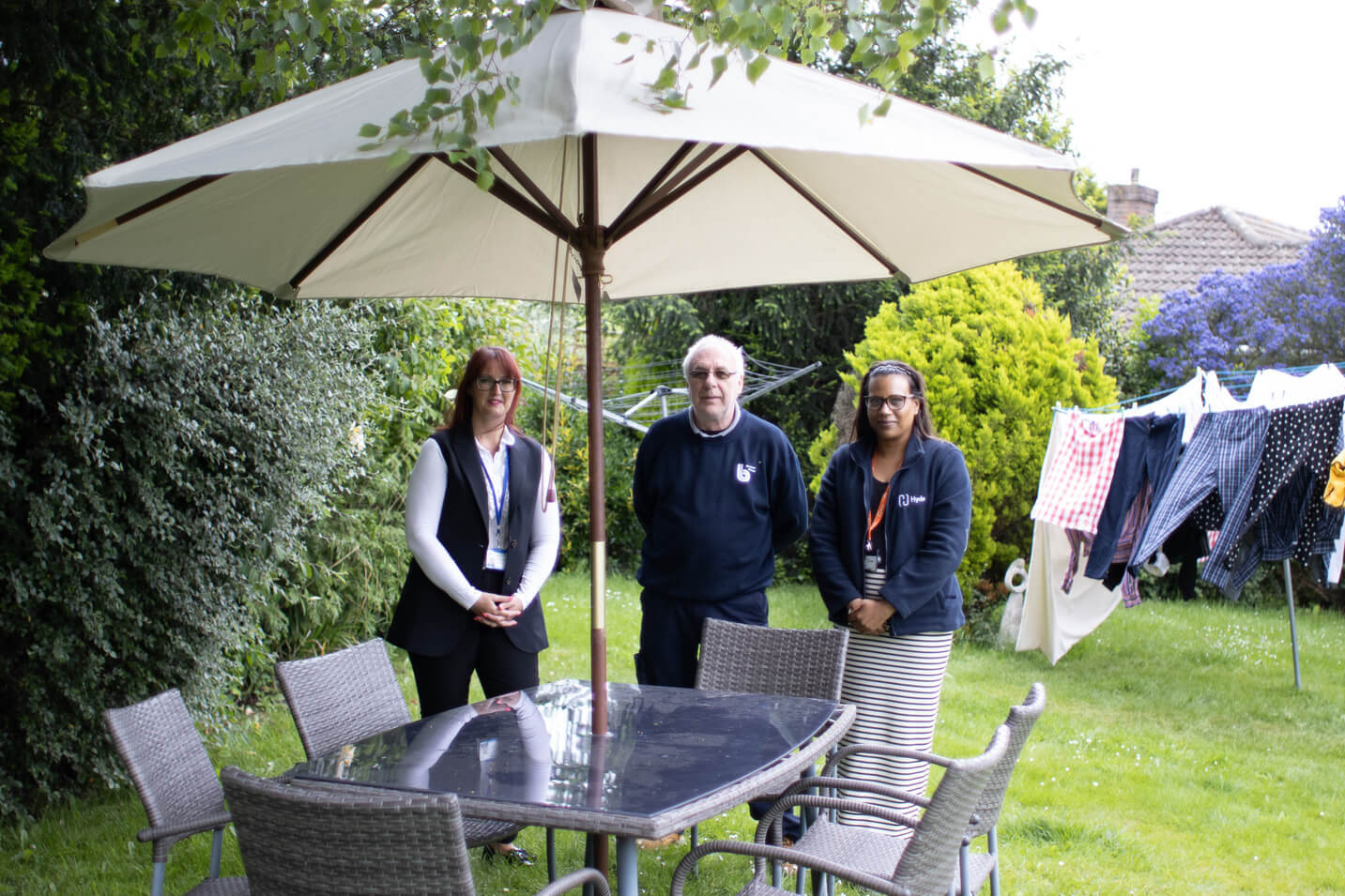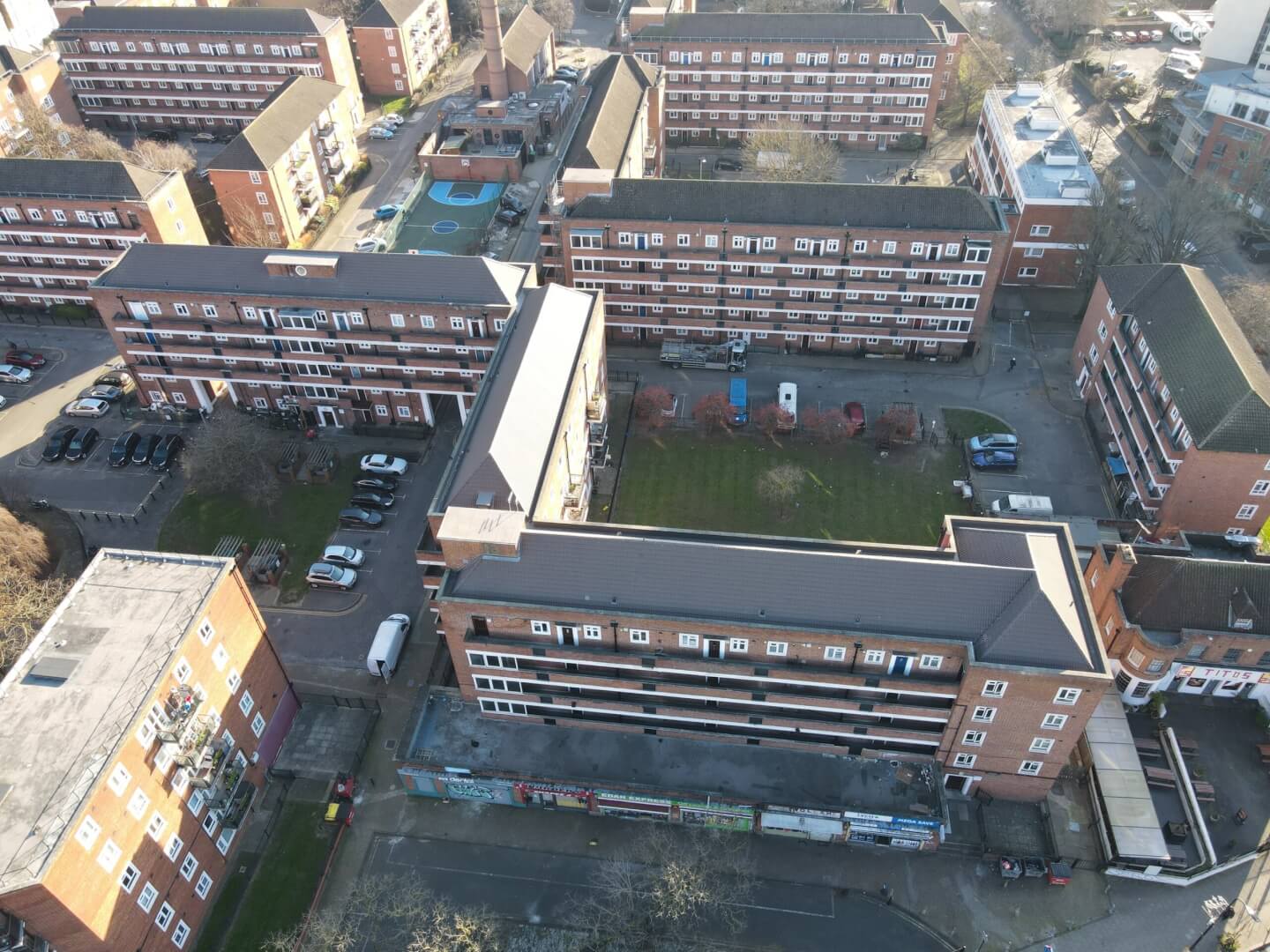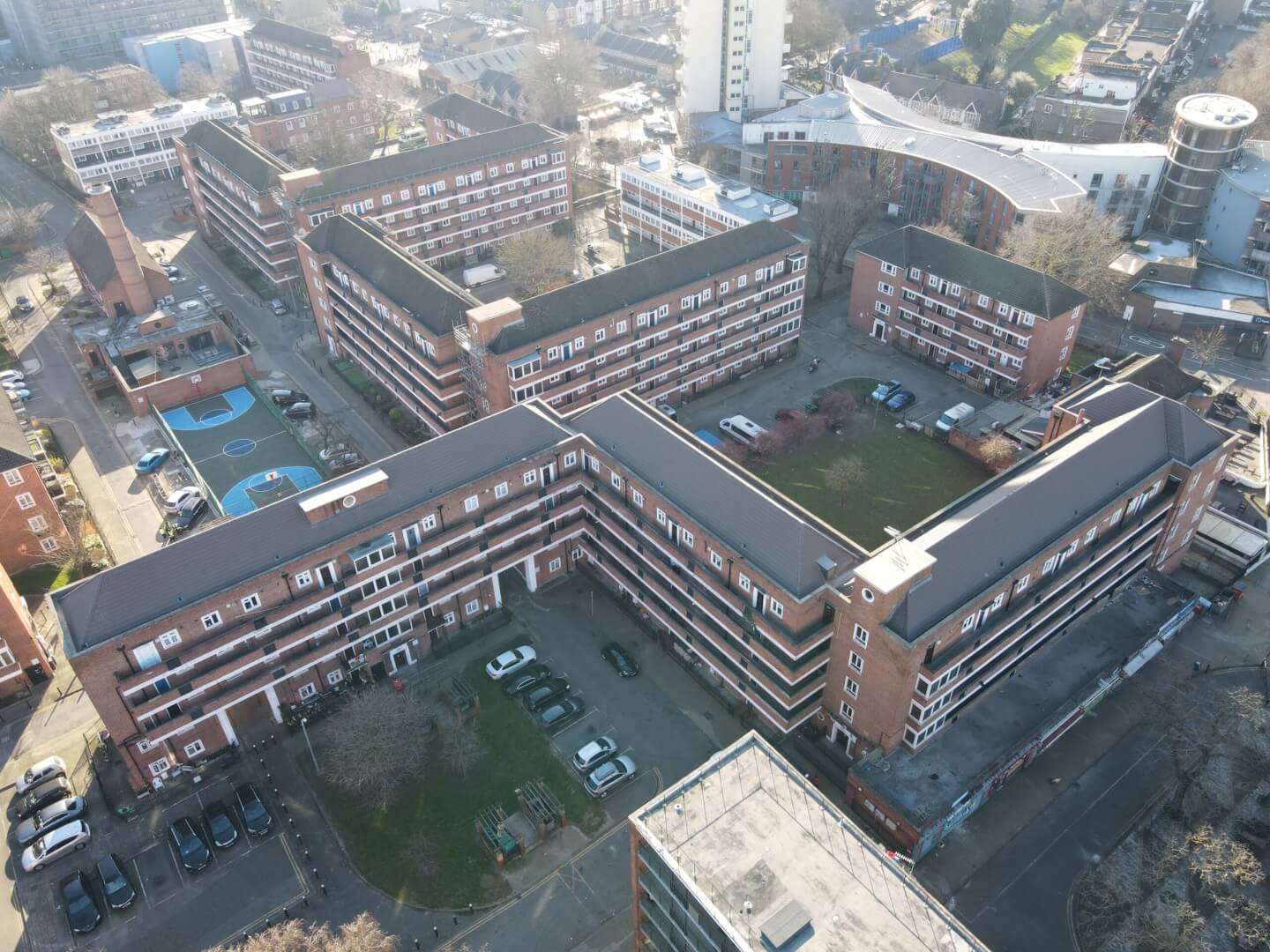Our HR and Social Value teams have been collaborating with industry-backed Cross-Industry Construction Apprenticeship Task Force (CCATF) to run a pilot project aimed at encouraging new talent into the property sector.
Working in partnership with Romford JobCentre Plus, Havering Council and the Task Force training provider Involved Social Impact Projects (I-SIP), Breyer has now invited 10 local Havering residents for paid work placements across the business, from Bid, IT and Quantity Surveying teams through to trade roles within Renew and Repair.
Successful candidates were initially identified through a Romford DWP job fair, which was followed by a series of recruitment, training and ‘speed interview sessions’ hosted by Breyer. The process ensures that the right person is placed in the right role, based on the individual’s skills and interests. The intention is for these individuals to subsequently progress into permanent roles and apprenticeships, with the addition of individual personal and professional development (PPD) support to enhance future career plans.
Breyer’s Social Value & Communities Manager, Bobby-Jay Lorraine, who has been heavily involved in the pilot, comments:
“This pilot allows us to introduce local residents in Havering to careers that they may not have previously come across. We promote STEM career pathways and offer specialist expertise at management level to ensure we pass meaningful industry knowledge onto these individuals. Following the recent pandemic, this programme is helping Breyer to identify and develop a diverse range of potential employees with excellent transferable skills, through specialist pre-employment training and mentoring. We also ensure that individuals experience a placement that genuinely fits them and, in turn, introduce well-placed talent into the construction industry, which ultimately contributes towards the development of a better performing, more sustainable workforce in the long term for organisations like Breyer. It’s a win for everyone.
“It’s been a real privilege to be involved in this Romford pilot and it’s been exciting to see other contractors in the local area show interest in participating in the future. It’s also been rewarding to be able to provide tailored support to individuals living in digital poverty, identified as part of the construction skills building and social impact model of the programme. Breyer’s Foundation addressed this concern by donating laptops to those individuals who had no form of computer at home. This gift will improve wellbeing for these individuals by enabling them to job search; giving them the means to study; enhancing digital skills and connecting them with family and friends better. It is a fantastic model all round and I am looking forward to the next phase.”
A total of 19 candidates attended the event over the two-day period; the majority of whom were unemployed or currently only have part-time employment. I-SIP has provided the training element of this new programme and were present during the final interview-focused event.
Kevin Dawson, CEO of I-SIP, said of the interview mornings that took place last week:
“Our partnership with DWP, especially Romford Job Centre, alongside the remarkable openness and flexibility displayed by Breyer Group, particularly their steadfast focus on assessing individuals based on their positive attitude rather than fixating on their skillset or background, has been truly invigorating and has set this programme apart. The feedback we’ve received from programme participants has been overwhelmingly positive, with their experiences significantly enriched by the unwavering support we’ve received from Breyer and the broader Task Force. Without this collective support, the level of success we’ve achieved would not have been possible.
“Hiring managers have conveyed excellent feedback, expressing genuine enthusiasm for bringing programme participants into their teams. The DWP has expressed absolute delight in the outcomes we’ve accomplished and continues to provide unwavering support for the programme’s entirety. The synergy and commitment from all stakeholders involved has played a pivotal role in the programme’s triumph and they have left a lasting impact on both participants and the wider community. This programme exemplifies that when all stakeholders uphold their values, we can achieve tremendous success.”
Lisa Crundwell – Romford Jobcentre Plus, said:
“It has been an absolute pleasure to see the dedication of the participants, how their confidence and self-belief has developed. They now have the opportunity to progress into employment, in roles which they are engaged in and see their potential and a future.
“This pilot is testament of how collaborative working with partners, all focused on the same shared mission can impact and improve the lives of our local community”
Commenting on the success of the pilot, CCATF Head of Marketing, Communications and External Affairs, Christopher Selby said “The construction sector has long needed some clear, structured joined up thinking to deliver employment opportunities and make inroads into reducing skills gaps. This pilot represents the next step and can be seeing as what we refer to as “joined up doing”. By working in collaboration and removing the so-called silo culture, employers are able to access sections of the community that may well have not been accessible previously.
“By creating tangible, practical training and support packages, new entrants to the construction sector are given the opportunity to undergo a learning and development process that gives them an insight into, not only the industry, but the myriad of roles it has to offer.
“We also offer direct benefits to prospective employers with the ability to secure appropriately screened and work trial ready individuals, along with the ability, ultimately, to support their own Section 106 commitments on projects when taking such individuals on.
“We see this project as a practical and potent way of leveraging multiple, sector specific skills and expertise and, of course, creating substantive outreach to those furthest away from the job market and most likely to be socially excluded”.
This pilot will be used to create a blueprint for future Task Force recruitment and training programmes to be rolled out elsewhere across the country. Any individuals involved in this pilot who haven’t yet found employment will continue to be mentored as part of the programme until a suitable role is found.

